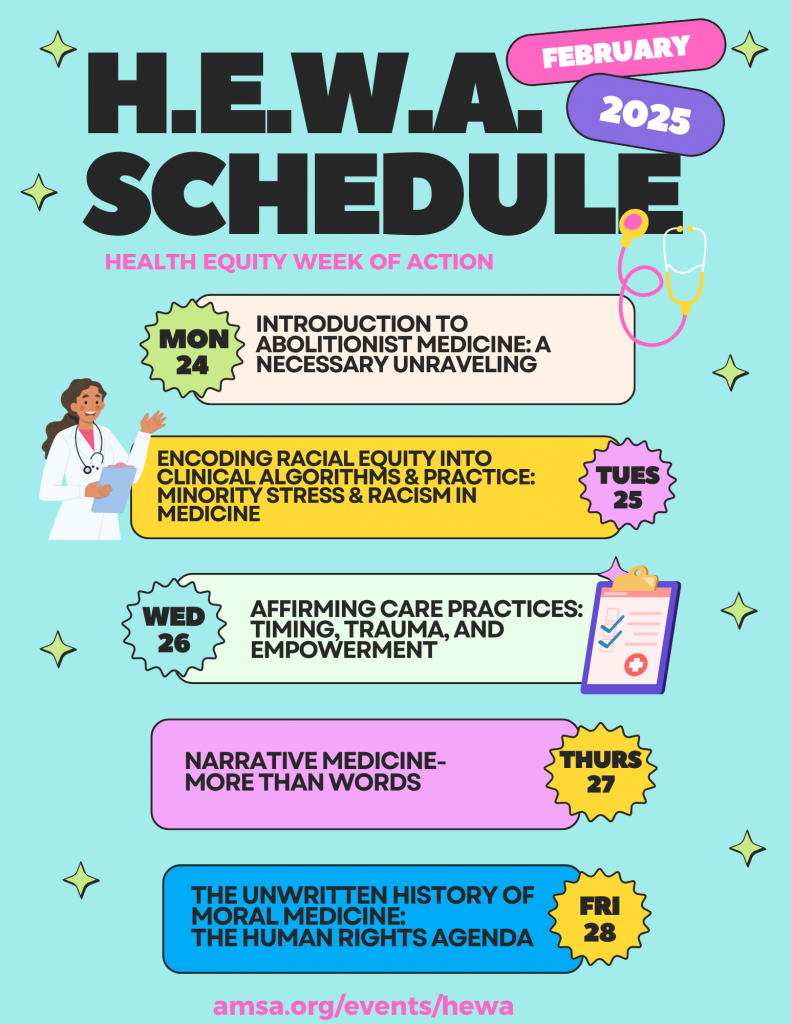Mental Health – April 16, 2018
One in five adults in the U.S. suffer from a mental health condition within a given year. We want to raise awareness of these disorders, destigmatize them, and empower people with resources and knowledge. Mental health is as serious and real as physical disorders; it is time for our us to treat them as such.
Activity Ideas:
– Look at these fun mindfulness activities for Children and Teens
– Facilitate a 1-2 hour group activity with this Mental Health Awareness Activity
– Check out this free mental health resource library, packed with anxiety reducing worksheets, planners, gratitude exercises and more.
– Learn more about why we need to speak more openly about mental illnesses by watching these TED talks: Joshua Walter: On Being Just Crazy Enough or Ruby Wax: What’s so Funny about Mental illness
Social Determinants of Health – April 17, 2018
“It is impossible to understand people’s behavior…without the concept of social stratification, because class position has a pervasive influence on almost everything…the clothes we wear…the television shows we watch…the colors we paint our homes and the names we give our pets…Our position in the social hierarchy affects our health, happiness, and even how long we will live.” – William Thompson, Sociologist (Society in Focus: An Introduction to Sociology)
Activity Ideas:
– Check out this TED Talk: Social Determinants of Health by Claire Pomeroy
– Look up the nearest grocery store, how long would this trip take if you didn’t have a car? Are there any food deserts in your city?
– Reflect on your personal encounters with disparities (i.e. being of a minority population and pursuing medicine), or stories that you’ve heard from friends, family, acquaintances.
Age-Related Topics – April 18, 2018
Today we consider how social factors affect the life expectancy of different races. We also explore the leading causes of death.
Activity Ideas:
– Check out this TED Talk: How Racism Makes Us Sick by David R. Williams
– Read an article on Mortality in the United States
– Reflect on the article and TED Talk provided for today. Identify the race that has the lowest life expectancy and the race with the highest life expectancy. Why do you believe these statistics match these rates?
Race in Medicine – April 19, 2018
Today we explore how topics of race are present in and affect medical training and decision making. “Race isn’t a good category to use… leads researchers down the wrong path and leads to harmful results for patients. For example, black patients who have the symptoms of cystic fibrosis aren’t diagnosed because doctors see it as a white disease.” – Dorothy Roberts, Sociologist and a professor at University of Pennsylvania Africana Studies department.
Activity Ideas:
– Interview a doctor on this topic
– Read an article on Racial Profiling in the Management of Chronic Illness
– Take “weight” and “race” implicit bias tests here: Implicit Association Tests. Do you believe these tests? How will knowing these biases change the way approach patient care, if at all?
– If a stereotype applies to your background, how does it make you feel? How is this feeling different from that elicited by a stereotype that does not apply to you?
Health Care of Inmates/Incarceration – April 20, 2018
In a landmark 1986 case, Estelle v. Gamble, the Supreme Court held that not providing adequate medical care to prisoners was a violation of the Constitution’s Eighth Amendment against cruel and unusual punishment. Learn more about healthcare of inmates.
Activity Ideas:
– Check out this TED Talk: Mental Health and Criminal Justice by Crystal Dieleman
– Read an article on Incarceration, the War on Drugs, and Public Health
– What are your reflections from this week and what will you do differently from now on, if anything?

